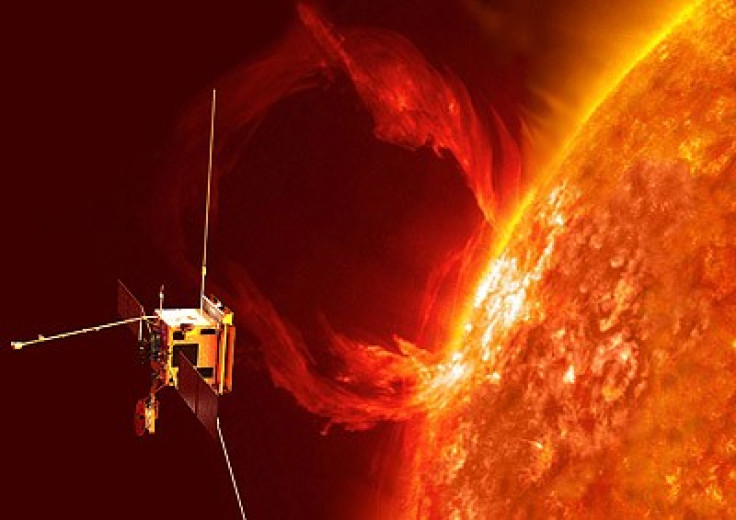ESA To Launch Solar Orbiter to Get Closer View Of Sun

The European Space Agency (ESA) plans to build a solar orbiter that can give a closer view of the sun.
The ESA's orbiter, to be launched in 2017 and costing around 244.71 million pounds, will investigate the sun and how it creates and controls the heliosphere, the extended atmosphere of the sun.
Scientists claim that the orbiter will fly to within 45 million kilometres of the sun, closer than Mercury. It will capture images of the poles for the first time, helping us understand how the sun generates its magnetic field.
The orbiter will also investigate the connections between the sun and the heliosphere, a huge bubble in space created by solar wind that extends far beyond our solar system. It is through this wind that solar activity can cause auroras and disrupt satellite-based communication.
The ESA has given a contract to build its next-generation solar orbiter to Astrium UK which will lead a team of European companies that will supply various parts of the spacecraft.
"Today the ESA awarded a very important contract in the space science domain to Astrium's spacecraft design and build facility at Stevenage in the UK," said Prof Alvaro Giménez Cañete, Director of Science and Robotic Exploration at the ESA.
"The solar orbiter is a fantastic mission," said Prof Cañete. "It will help us understand how the sun, essential to almost all life on earth, forms the heliosphere and the origin of space weather, which can have an enormous influence on our modern civilisation."
"I am delighted that Astrium has won solar orbiter, which reaffirms our leading position in science and exploration missions. The solar orbiter is the second prime contract awarded by the ESA to Astrium in less than six months. This contract builds on our unrivalled heritage in solar missions which include the SOHO satellite which is still operational after 17 years providing valuable data for solar scientists across the world." said Colin Paynter, Head of Astrium UK.
© Copyright IBTimes 2024. All rights reserved.





